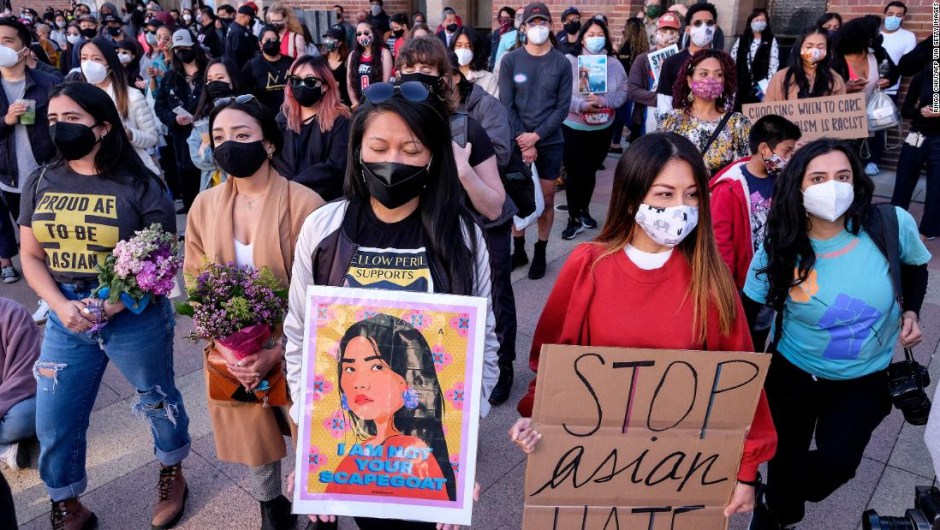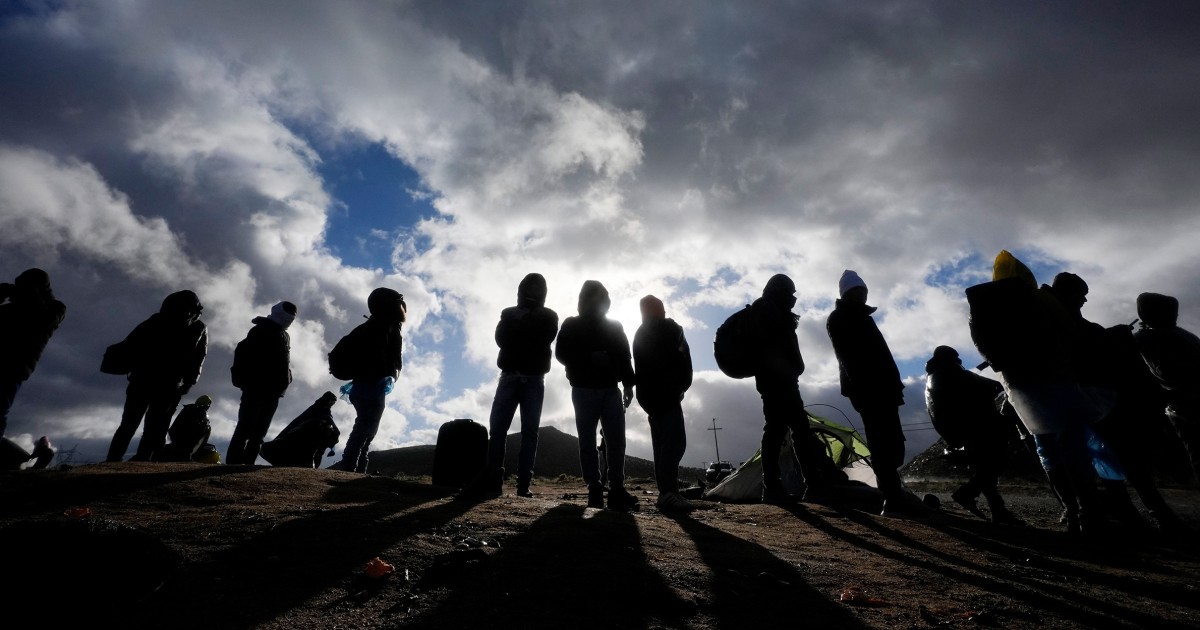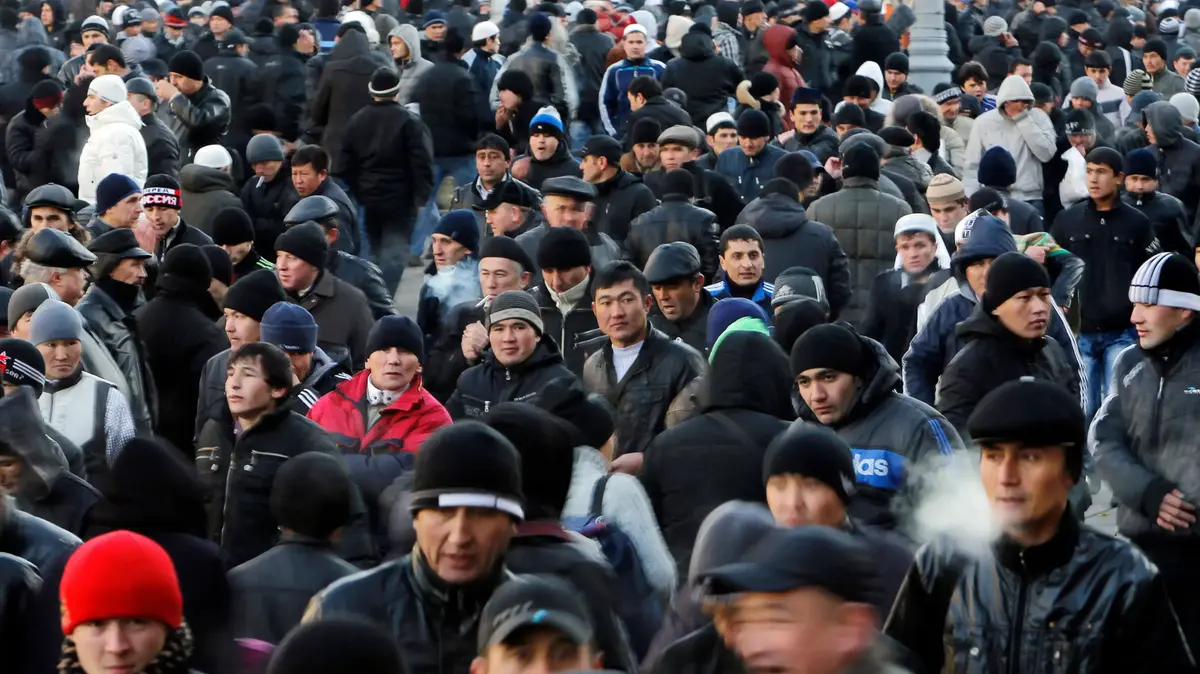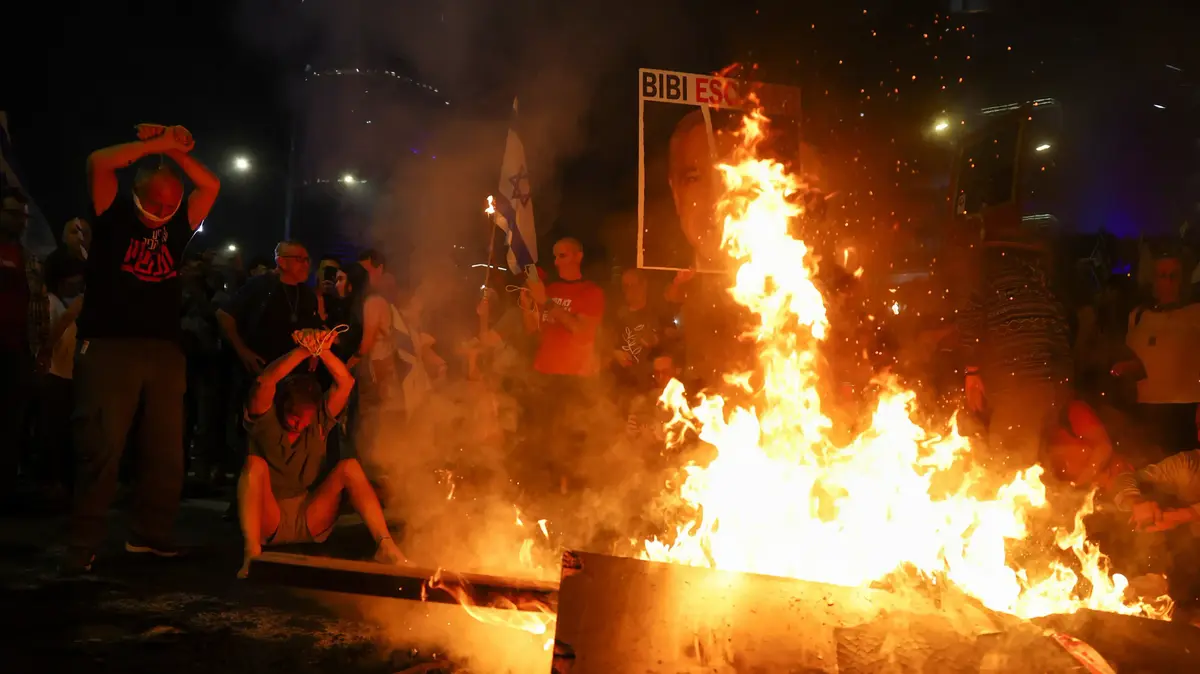Editor's Note:
John Avlon is a senior political analyst at CNN.
The opinions expressed in this comment belong to the author.
See more opinions on CNN.
(CNN) -
We still don't know exactly what motivated the alleged killer of eight people in Atlanta-area spas Tuesday night, six of whom were Asian-American women.
But we do know that hate crimes against Asian Americans have been on the rise since the start of the COVID-19 pandemic in the US.
These people have reported being attacked at least 500 times in the first two months of this year, according to the Stop AAPI Hate organization, with a total of 3,795 complaints received over the past year.
Most of them - 68% - were verbal harassment, while 11% involved physical attacks.
In recent weeks, the murder of an 87-year-old Thai immigrant, Vichar Ratanapakdee, was known, as well as the brutal attack on a 67-year-old man in San Francisco that is not mentioned publicly, also the beating of a 27-year-old boy named Denny. Kim in the Korean neighborhood of Los Angeles, who says his attackers shouted "You have the Chinese virus, go back to China."
advertising
In 2020 there were 29 racially motivated attacks against Asian Americans in New York City, according to the New York Police Department, 24 of which are described as "motivated by the coronavirus."
This growing wave of violence led to thinking about the racial issue after news of the murders in the Atlanta area broke.
MORE: What We Know About Robert Aaron Long, The Suspect In The Atlanta Shootings
It is a fact that the first covid-19 outbreak was reported in Wuhan, China.
But pandemics don't care about race or politics or even national borders.
If anything, that doesn't stop the racial scapegoat.
We saw a variation on the theme during the 1918 influenza epidemic, which some labeled the "Spanish flu," and which is actually believed to have spawned on a US Army base in Kansas, when it was blamed without rationale for immigrants and Native Americans to spread the disease in cities in the western United States.
That is why there was a rejection of attempts to label this pandemic the China flu - or "Kung-Flu" - by President Donald Trump, members of his administration and allies in the right-wing media.
The point wasn't maddened political correctness, it was awareness of the nasty impulses it could unleash.
We have seen too many contemporary examples of extreme rhetoric that leads to violence.
The El Paso shooter, who killed 22 and wounded 24 others who shopped at a local Walmart, told investigators he drove 11 hours to attack Mexicans, echoing extremist views about a "Hispanic invasion. ».
LOOK: Biden asks migrants "not to come to the United States"
There's a lot we don't know about the alleged Atlanta spa shooter at this point, and the motivation can be hard to distill.
Needless to say, his love for God and his weapons in publicity on social media does not mean anything negative in itself.
Both of these topics are revered by millions of law-abiding Americans.
It could turn out that he was motivated by a more personal matter that led to his killing.
But these impulses rarely hatch in a vacuum, and we have seen anti-immigrant and anti-Asian sentiments rise in our society, especially in recent months.
According to an analysis by the Anti-Defamation League (ADL), anti-Asian-American conspiracy and hostility theories rose 85% on Twitter in the 12 hours after Donald Trump's covid diagnosis.
Hate speech has been a growing problem in the US, with a new ADL report showing that white supremacist propaganda nearly doubled in 2020 to the highest levels ever recorded.
Much of it featured "white supremacist language with a patriotic slant" in an effort to "normalize the white supremacist message and reinforce recruitment while targeting minority groups."
The Office of the Director of National Intelligence released a threat assessment on domestic violent extremism, which the Secretary of the Department of Homeland Security, Alejandro Mayorkas, described as "the greatest threat" to the United States.
The report highlights the particular challenges of confronting lone extremists, whom Mayorkas described as "willing and able to take these ideologies and execute them in an illicit, illegal and violent manner."
These threats are not new to the US, but they are on the rise again.
The United States is a nation of immigrants.
We are the most diverse large nation in the world, which we should consider our greatest renewable resource.
Studies show that immigrants are far more likely than Native Americans to start businesses, and more than a third of the Nobel Prizes awarded to Americans in science were awarded to immigrants.
Not only are Asian Americans the fastest growing group of immigrants in the US, they also have higher rates of college degrees and income than the general population.
Furthermore, Asian Americans have also been part of the American tapestry for a long time, and it is not the first time they have experienced periods of profound discrimination.
The Chinese Exclusion Act was a notorious law that codified discrimination against Asians in 1882, making immigration illegal and prohibiting Chinese Americans from becoming citizens.
It was repealed in 1943, around the same time that President Franklin Delano Roosevelt set up Japanese-American internment camps.
This is a horrible aspect of American history, but it must be remembered not to repeat it.
Discrimination does not define us as a nation.
A decade after the internment camps, the United States elected its first Asian-American senator, Hiram Fong of Hawaii, the son of Chinese immigrants.
A few years later he was joined by Senator Daniel Inouye, a Japanese American who fought with the notorious 442nd Infantry during World War II and served in the Senate for half a century.
A fundamental commitment to inclusion and equality before the law is the alternative American tradition, which is erratically pursued but ultimately achieves measurable progress over time.
As Frederick Douglass stated in a great 1869 speech defending the rights of Asian Americans who were already under attack, we are, at best, a "composite nation."
«We are a country of all extremes, sides and opposites;
the most conspicuous example of composite nationality in the world, ”said Douglass.
“There are things in the world like human rights.
They do not rest on a conventional foundation, but they are eternal, universal and indestructible.
In the face of prejudice and violence even today, that commitment to equal rights, under the law, is all that is required to acknowledge injustice and demand a different path, consistent with American ideals, not our fears.






/cloudfront-eu-central-1.images.arcpublishing.com/prisa/MP4Q22HORJBZVAHKLJTEQWHP3Y.JPG)




/cloudfront-eu-central-1.images.arcpublishing.com/prisa/KMEYMJKESBAZBE4MRBAM4TGHIQ.jpg)


/cloudfront-eu-central-1.images.arcpublishing.com/prisa/EXJQILQR5QI7OMVRTERD7AEZAU.jpg)
